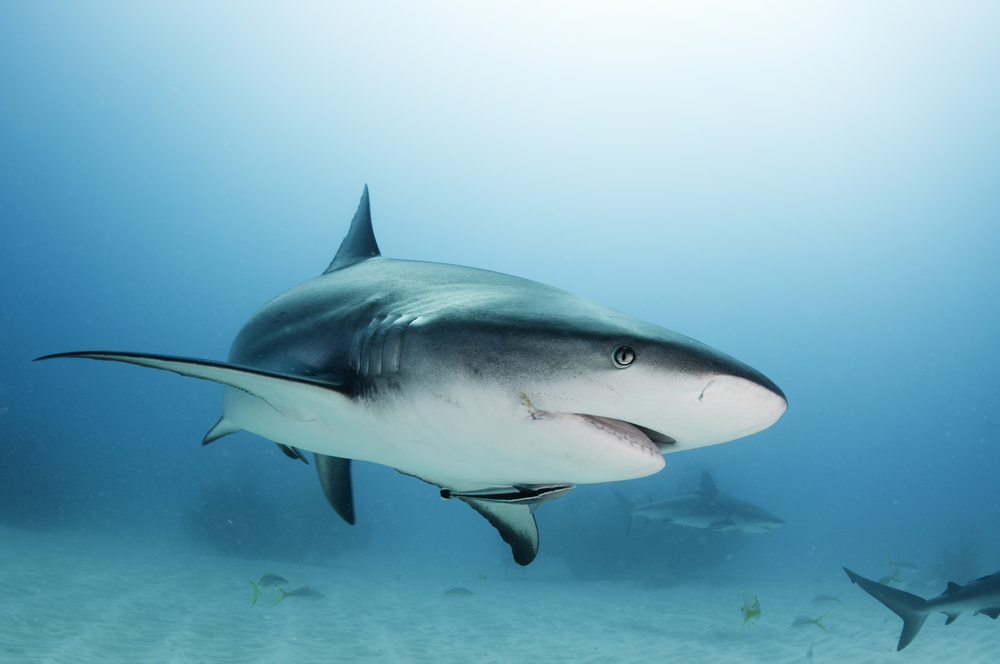
The thought of being attacked by a shark is universally terrifying. Being literally out of your depth in an ocean full of these impressive predators is something most of us try not to think about during a visit to the beach. Indeed it can be enough to put some people off swimming in the sea for life.
Truth be told, the likelihood of being attacked by a shark is remote enough to be considered ridiculous. While these fish are amazing hunters, their record for killing humans is considerably less impressive than their murderous reputation suggests.
Here’s why we should stop being scared of sharks and start respecting them for the amazing animals they are.
First thing’s first: your odds of being attacked by a shark are really, really low

They look scary, sure, but your chances of being attacked by a shark are incredibly slim. How slim? One in 11.5 million, according to the globally respected International Shark Attack File published by the University of Florida. And the odds of being killed in one of these attacks is significantly less than that: approximately one in 264.1 million. By contrast, the odds of being struck by lightning are less than one in a million.
Most shark attacks are provoked

Usually shark attacks occur in circumstances where the shark feels threatened, such as when they’re caught in a net, being pursued by spearfishermen or (foolishly) getting messed around by cocky divers. So if you don’t plan on going near the fanged fish in the first place, let alone attacking them, you’ve got little to fear.
Sharks don’t even like the taste of humans

While horror films like Jaws lead us to believe that sharks have a voracious and unending hunger for human flesh, the reality is that they’d much rather be chowing down on one of their usual aquatic meals like seals or smaller fish. So when a shark does attack a human, it’ll often relent once it realises the ‘prey’ that it’s gone for isn’t particularly tasty.
The shark attack capital of the world has witnessed zero shark-related fatalities

If you’re not a fan of sharks, you probably won’t want to swim in the water at New Smyrna Beach in Florida. There are so many sharks here that it’s estimated most swimmers will come within three metres of one, even if they’re not aware of it.
In such sharky waters, it’s no surprise that the area has seen its share of close encounters over the years. There have been 210 shark attacks recorded at New Smyrna since 1882, but remarkably not a single person has died from the resulting injuries.
The vast majority of shark species have never attacked a human

Of the 480 living species of shark, just 34 have been held responsible for attacking humans since 1580. ‘Maneating’ sharks are even rarer, with only 12 species recognised as having killed humans. The others are still excellent predators—it’s just that they’d rather focus on eating fish [or plankton] than you.
Only four shark species have killed more than ten people

The numbers go down even more when you consider that only three species—tiger sharks, bull sharks and great white sharks—are known to have reached double digits in terms of fatal attacks. In fact, 85% of all recorded shark attacks throughout history can be attributed to these three species.
Scientists believe there’s one other silent killer we should be wary of. After shipwrecks such as the Nova Scotia in 1942 and USS Indianapolis in 1945, oceanic whitetip sharks were attributed to the deaths of many missing sailors. Without proof, there’s no way of recording these deaths officially as shark attacks.
Sharks should be afraid of us, not the other way around

While it’s very rare for a human to be killed by a shark, death looks a lot more likely once the tables have been turned.
Apparently 2011 was a bad year for shark-related deaths, when 12 people died worldwide. For shark populations, the same period was an ocean-spanning genocide. A shocking 100 million sharks are killed by humans every year. That means 11,417 sharks killed per hour. So next time you think twice about a quick dip in the sea, ask yourself: are we really the ones who should be frightened?
[geoip-content not_country=”CA”]
Want to explore more of the ocean depths? Check out our video streaming service, with the very best natural history shows and documentaries from right across our big blue planet.
[/geoip-content]
